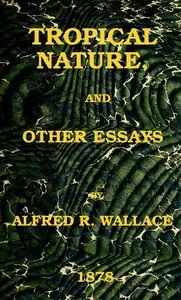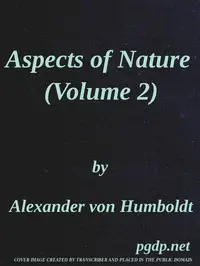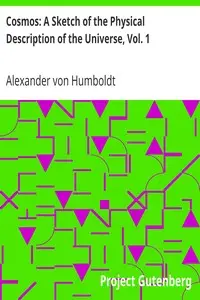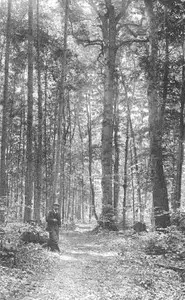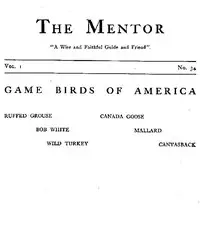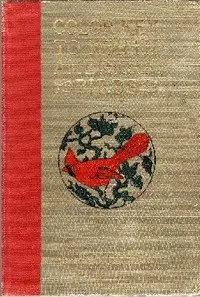"Aspects of Nature, in Different Lands and Different Climates (Vol. 1 of 2)" by Alexander von Humboldt is a mid-19th century scientific exploration that seeks to artistically and scientifically reveal the profound beauty and complexity of nature across diverse lands and climates. Humboldt's motivation, rooted in experiences from the forests of the Orinoco to the Venezuelan Steppes, centers on sharing the joy and solace found in experiencing nature through vivid descriptions and scientific insights. The book starts with an overview of Steppes and Deserts, detailing the climate and vast physical layouts of these spaces. Overall, the publication shows how understanding nature can benefit human emotion, and shows beautiful views of the landscapes of our world.
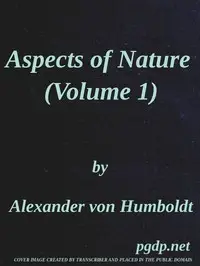
Aspects of nature, in different lands and different climates (Vol. 1 of 2) with scientific elucidations
By Alexander von Humboldt
Journey across continents to experience a world filled with scientific awe and to discover nature’s power to heal and invigorate the human soul.
Summary
About the AuthorFriedrich Wilhelm Heinrich Alexander von Humboldt was a German polymath, geographer, naturalist, explorer, and proponent of Romantic philosophy and science. He was the younger brother of the Prussian minister, philosopher, and linguist Wilhelm von Humboldt (1767–1835). Humboldt's quantitative work on botanical geography laid the foundation for the field of biogeography, while his advocacy of long-term systematic geophysical measurement pioneered modern geomagnetic and meteorological monitoring. Humboldt and Carl Ritter are both regarded as the founders of modern geography as they established it as an independent scientific discipline.
Friedrich Wilhelm Heinrich Alexander von Humboldt was a German polymath, geographer, naturalist, explorer, and proponent of Romantic philosophy and science. He was the younger brother of the Prussian minister, philosopher, and linguist Wilhelm von Humboldt (1767–1835). Humboldt's quantitative work on botanical geography laid the foundation for the field of biogeography, while his advocacy of long-term systematic geophysical measurement pioneered modern geomagnetic and meteorological monitoring. Humboldt and Carl Ritter are both regarded as the founders of modern geography as they established it as an independent scientific discipline.



